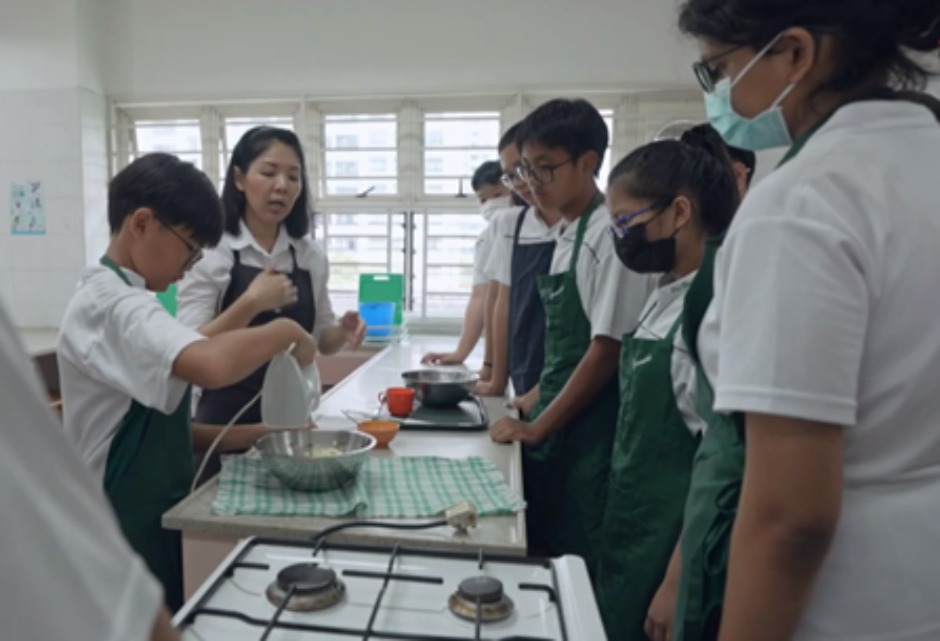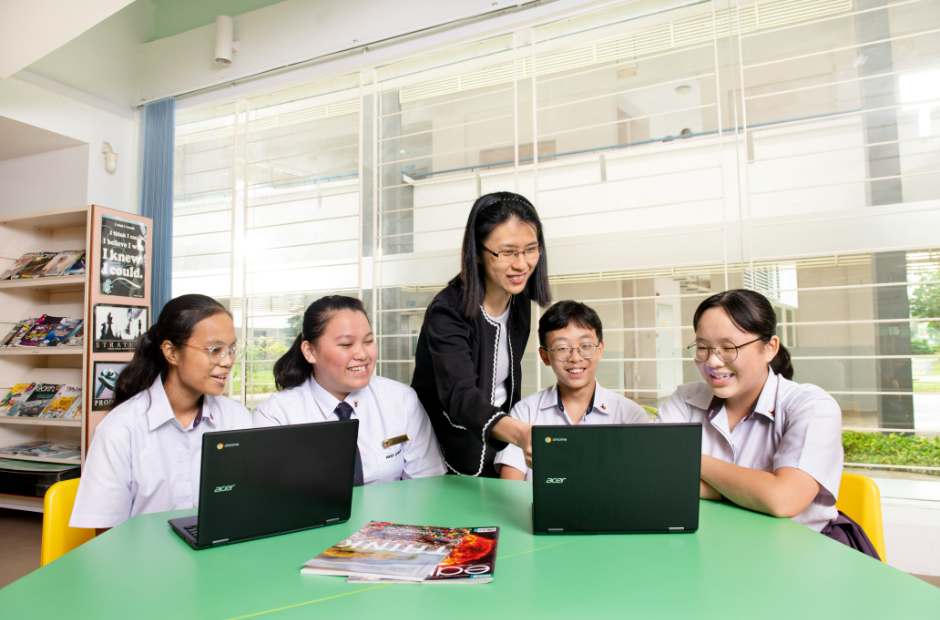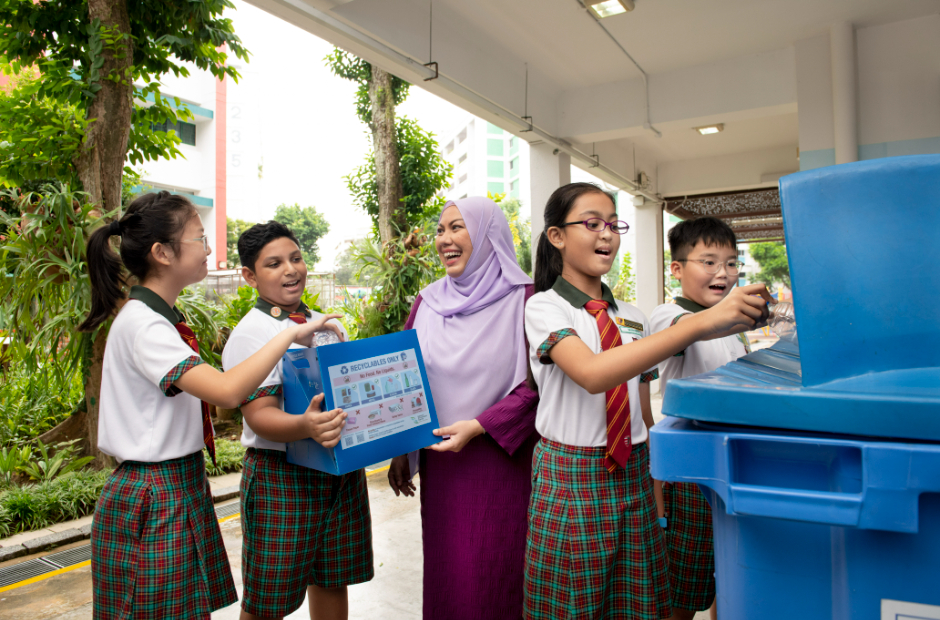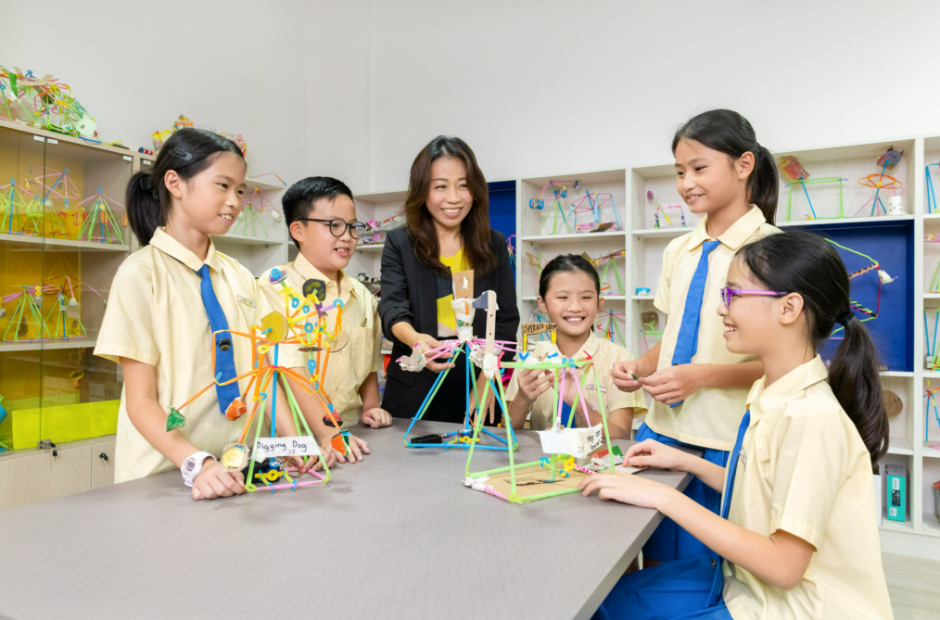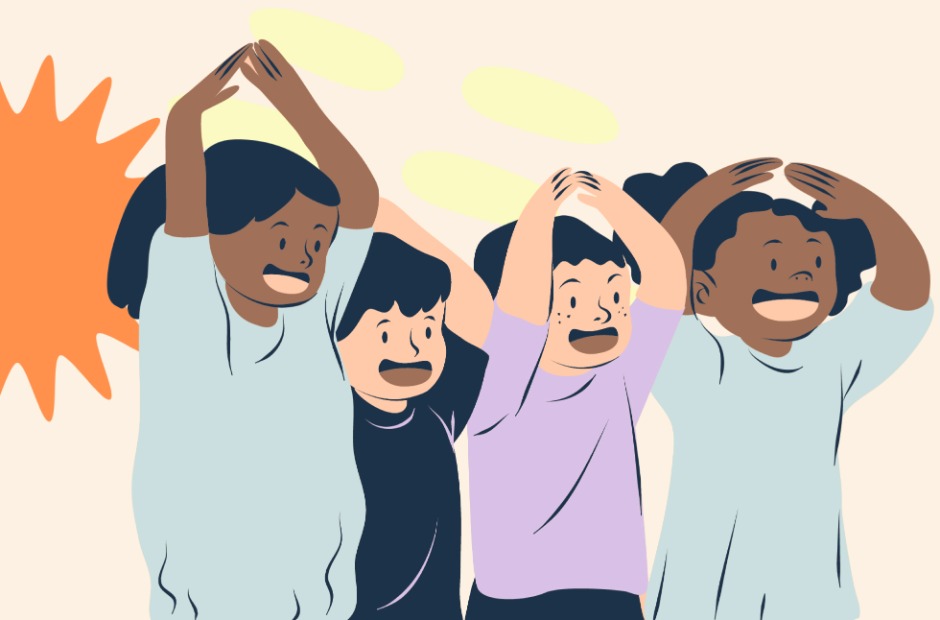She models empathy, the ‘highest form of knowledge’, to her students.
12 Jul 2023
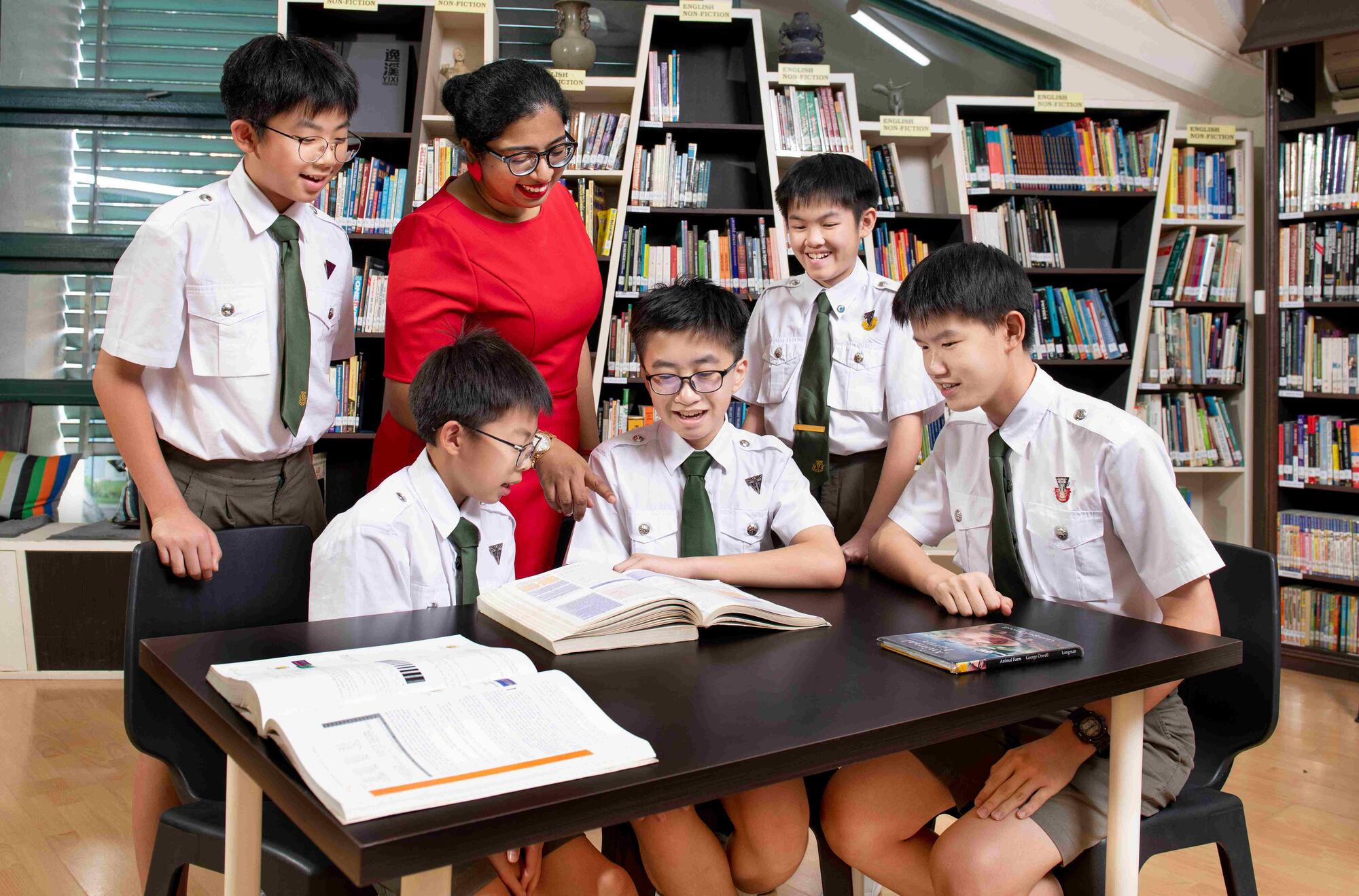
Being able to show care is what matters, says Catholic High School’s Mathematics teacher, Miss S Purnima Janani. She sees education as the acquisition of not just knowledge but empathy.
Schoolbag speaks to the Outstanding Youth in Education Award (OYEA) 2023 finalist on how she models such behaviour with her students.
What inspires you to teach?
“Miss Janani, please help me!”
Tim* texted me tearfully, late one night after having a fight with his parents.
“Are you ok? What happened?” I was concerned for his safety.
When I first met Tim, he had difficulty controlling his emotions, especially when he felt frustrated. When I spent time talking to him and sought to understand him better, he realised that I saw him not just as a face in a sea of students, a discipline case, or a grade on an assessment paper. He knew that I cared for him as an individual.
Together with the school counsellors, we shared with him strategies on how to recognise his emotions, be aware of his triggers, and calm down. He soon became a lot more self-aware, optimistic and cheerful too.
.jpg)
There are many Tims we meet on a daily basis, but all it takes is one trusted adult with empathy to touch their hearts.
For me, that trusted confidante has always been my mother. Every morning, she wakes up before me, to make me a strong cup of coffee using a traditional coffee maker that has been in my home for years. This simple act of kindness and care is an everyday reminder to me of how important it is to do likewise for my students.
To me, education is not just about acquiring new knowledge, but understanding others and caring for them. That is why I am a strong advocate for a positive school environment where students feel happy and loved… that they belong.
I spend time with my students during recess and after school, to have honest conversations with them about anything and everything. A word of praise, a short text to check in, or a quick fist bump, can all go a long way in making students feel like there is someone who genuinely cares about them.
*Not his real name
Describe a teaching approach you have found effective.
When one teaches, two learn – peer tutoring is a strategy I often used in my Maths classroom. Through the tutoring process, my students reinforce their understanding of the concepts and learn how to communicate thoughtfully with each other too.
For example, when learning the topic of Pythagoras’ Theorem in class, I got my students to design questions that used the concept in real-life scenarios. They took the initiative to read ahead and come up with questions of varying levels of difficulty, just to challenge their peers. They also created videos about the concept on Flip (a video discussion and sharing app), which were also very relatable, as they used humour, music, and memes to make it entertaining and exciting for their classmates!
Next, the class took up the challenge of answering each other’s questions, by posting their own solution videos on the app. To give feedback, the question-creators had to sharpen their own understanding of the concept and then figure out how to explain the concepts simply.
“A word of praise, a short text to check in, or a quick fist bump, can all go a long way in making students feel like there is someone who genuinely cares about them.”
“Why so slow! So easy, also don’t know?” These were some of the comments that my students had previously made in passing when giving feedback to their classmates. I saw this as a teachable moment to help my students learn how to be more kind and understanding in their words and actions. Hence, I taught my students how to use a simple framework so that their feedback would be both constructive and encouraging.
From initially using unkind words without much thought, they experienced how it would feel to both give and receive feedback in a kind manner – a feeling that will stay with them beyond this lesson.
Which school initiative are you especially proud of?
In order to get my students to develop empathy beyond the classroom, I actively look out for opportunities that will allow them to put themselves in the shoes of others.
When I heard about a Values in Action (VIA) project to serve 200 senior citizens who lived in rental flats at a CNY Reunion Lunch, I jumped at the opportunity and volunteered my class. I knew that this would be an excellent platform for them to interact with the elderly. Through these interactions, students will understand the stories, perspectives, needs and feelings of people from different backgrounds.
In preparation, I facilitated scenario-based discussions with my students to help them understand the need to speak slowly and patiently, to even use hand gestures to communicate if needed, and to really listen. We brainstormed on how to serve the elderly graciously and planned activities that would be appropriate for them. My students came up with a mini basketball game where the elderly could have fun throwing a lightweight paper ball into baskets of varying heights.
My students are usually “teens on the go”, so for a change, on the day of the event, it was heartwarming to see them holding the hands of the elderly with much tenderness, walking slowly with them, or sitting down patiently in deep conversation. Some even attempted to speak in dialect, or something unfamiliar to them, with the aim of connecting and making the elderly feel at home. The basketball game was also a huge success. As my students cheered the elderly on, encouraging them on basket after basket, the senior citizens were smiling from ear to ear, and participated with full enthusiasm.
I am glad that my students walk away with the understanding that while education is all about the pursuit of knowledge, the highest form of knowledge one can have is empathy.
We are on Telegram! Subscribe to our channel: https://t.me/schoolbag_edu_sg

